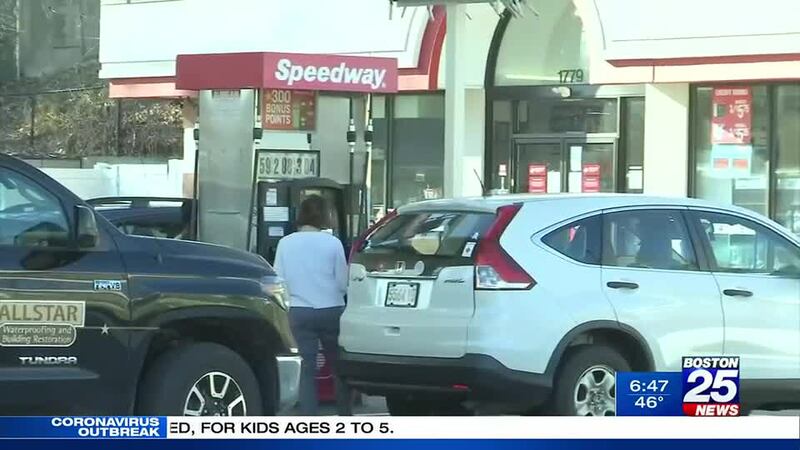Every time a driver fills up in Massachusetts, they’re paying a tax on each gallon of gas. Twenty-four cents to the state and a little over 18 cents to the federal government.
“The gasoline tax has been the major funding driver for transportation infrastructure improvements across the United States for many years,” said Mary Maguire of AAA Northeast.
But Maguire says this approach, which dates back to the 1950s, is running on fumes.
“Many vehicles are becoming more fuel efficient, which means that the funds and revenues raised by the gasoline tax are dwindling year after year.”
The situation is getting worse as more electric vehicles come on the road.
“It’s not a sustainable model moving forward,” Maguire said.
As that becomes more evident, there’s increasing interest in a so-called “vehicle mileage travelled fee” or “VMT.”
Steve Pociask of the American Consumer Institute said, “the idea is to come up with this fee system to replace the current fuel tax.”
Drivers would be charged for each mile with the rate varying depending on the type vehicle.
Pociask says trucks are responsible for more damage to roads and bridges because of their weight.
“If it’s causing that much damage, then shouldn’t it be contributing more towards the upkeep of those roads?”
Boston 25 News asked drivers their opinions about this concept.
One woman said she thought tracking mileage would be a better choice.
A man expressed concern about how the data would be gathered. “I’m not a big fan. Too much invasion of privacy.”
Another man said, “I think the logic around a mileage tax certainly makes sense, but I’d have to look at the big picture.”
Matt Casale of MassPirg specializes in transportation and climate issues.
“The beautiful thing about a vehicle mileage travelled fee is you can structure it anyway you want.”
Casale says this is an opportunity to rethink transportation from top to bottom.
“If used properly, a VMT or some other user-based system for driving, could make it easier to get where you need to go by fast bus or train, or it could improve the condition of the roads and bridges so you you’re not hitting as many potholes and you don’t need to spend as much on vehicle maintenance.”
And those repairs aren’t cheap. The American Society of Civil Engineers recently estimated the average driver in Massachusetts spends $620 a year in maintenance associated with driving on bad roads.
Cox Media Group







